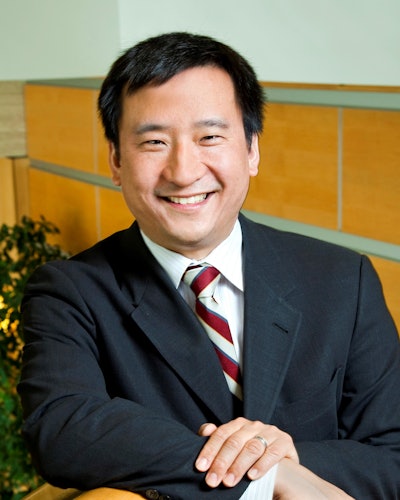I write to ask my progressive friends, especially those sympathetic to Asian Americans, to help me answer a question often asked by Asian American students about their Asian immigrant parents. More specifically, many students whose elders are Chinese immigrants — who may not identify as either “Asian” or “American,” much less “Asian American” — have given to me the most difficult query: how can they discuss race and civil rights at home, with family members who are, in their words, “racist” toward African-Americans and Latinos.
I would guess I am the age of those parents depicted as a problem. But I am much more like the students. I have been surprised when the former, more than once, have wondered if I might come give a speech for the benefit of the latter, because they explain they are concerned their children are becoming too “American,” corrupted on their liberal college campus. I do not have the heart to explain to them that it is much more likely I would give a speech at the invitation of the students, addressed to the parents.
 Frank H. Wu
Frank H. WuYet what is most needed is bridge building through dialogue. So I wonder if others will help me, who have faced the same dilemma. How can we explain our commitment to ideals? What seems to most worry the Chinese immigrants is that their American-born descendants will identify as racial minorities who have common cause with other people of color.
My hope, however, is that there is a means of reaching out that does not involve our stereotyping others, even those who look like ourselves (not all Chinese immigrants are alike!). It also isn’t appropriate to judge by our own standards or to demean newcomers. Some might not know much about African-Americans, or even Asian Americans for that matter, but the same is true of much of the native-born population, and that would include most of us if we had limited ourselves to what was taught to us in schools, which would have included maybe a passing mention of Chinese railroad workers and nothing negative about the Japanese American internment camps. Many of the professionals whose next generation is turning out differently than they expected, which perhaps is a universal norm, went through the Cultural Revolution with its propaganda phrases, and they are trained in STEM fields, which may encourage them to perceive the world more along the lines of Black-and-White, correct-and-incorrect. I wish emphatically to introduce myself as no better than a peer. I do not come to lecture as someone who has been here since birth.
It is never easy for youngsters to persuade anyone senior to them. That is all more so when so much has been sacrificed for the benefit of the offspring who appear to lack appropriate appreciation never mind Asian respect. Asian Americans, including immigrants regardless of whether they have the language to express it, have to struggle to be included to begin with. They often are shouted down, told to go back to where they came from, or mocked for accents. Even long-time activists might be less than welcoming despite their principles. I applaud the new arrivals who stand up and speak out even if I disagree with what they have to say.
The problem is prejudice. I have been in the room too many times, when there have not been African-Americans and Latinos, and someone Asian describes them in terms that could be copied from a White supremacist playbook. There are Asians who won’t hesitate to say, and are at least honest rather than polite, that they believe they are smarter and harder-working and thus more morally deserving than communities whom they characterize as lazy and stupid. I have even been present when someone Asian has articulated such sentiments to the subjects of her contempt. It is no better that such individuals also denigrate Asians of different ethnicities or even compatriots of the same origin but different province or dialect or faith.
There also is privilege. None of us, myself included, notices what we take for granted, by definition. Asian Americans enjoy the privilege of not being Black. Some White people will praise us for that very reason. The image of the model minority benefits us.
I am inspired to pose my question, real rather than rhetorical, by a student who wrote to me after my last speech on the campus of University of California at Berkeley. I was glad she contacted me. She is not alone. I repeat my request. Help me help her and in turn help our diverse democracy make good on its promise. I am convinced we can communicate effectively to her parents. I am willing to make the effort.
Frank H. Wu is the William L. Prosser Distinguished Professor at the University of California Hastings College of the Law. You can follow him on Twitter @Frankhwu


















